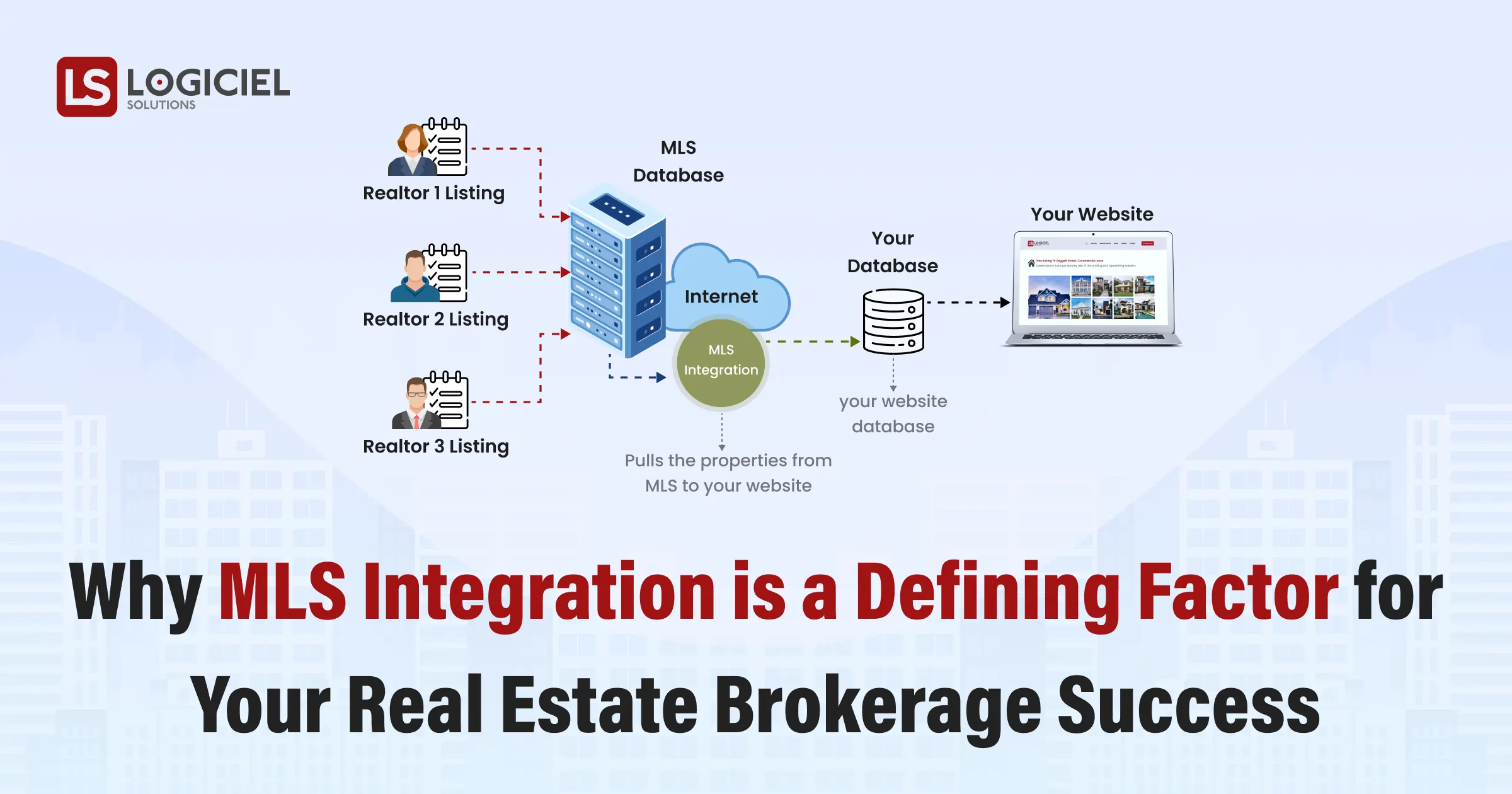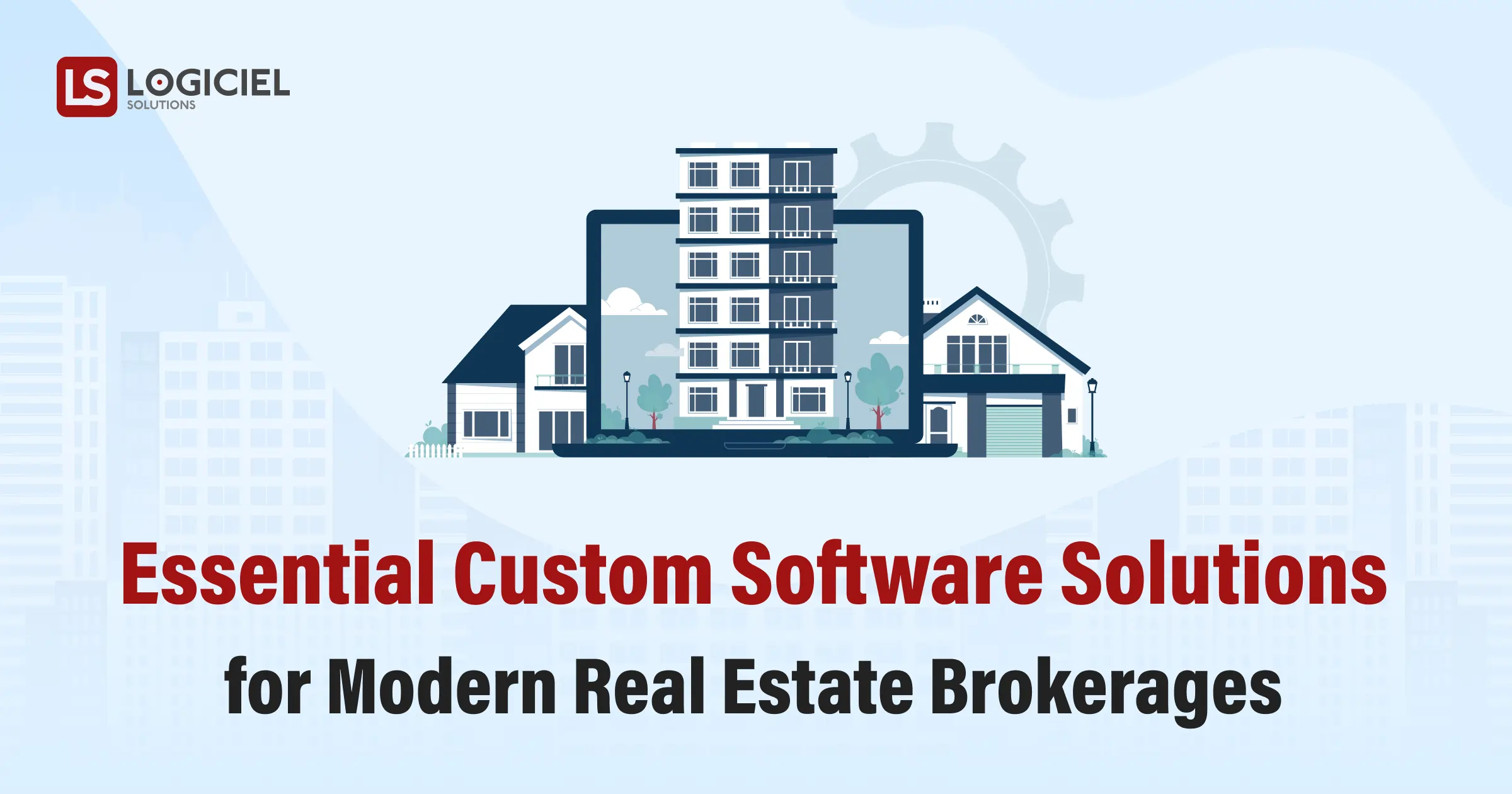In the competitive world of real estate, having access to up-to-date and accurate property data is essential for success. Multiple Listing Services (MLS) provide real estate professionals with critical data needed to streamline property transactions, enhance customer experiences, and stay ahead in the market. But the real game-changer is integrating MLS into your brokerage software. It offers seamless access to property data, improves efficiency, and enables better decision-making.
In this blog, we will explore why MLS integration is crucial for brokerages, the challenges it can solve, the benefits it provides, and how to successfully integrate it into your Real Estate Software Development process.
What is MLS Integration?
Multiple Listing Services (MLS) are databases used by real estate professionals to access property listings within a specific area or network. An MLS system contains detailed information about properties, including photos, prices, and other data crucial for real estate transactions.
MLS integration refers to the process of connecting MLS databases directly into your brokerage software. This seamless integration allows your team to automatically pull in property data without manually updating records, making the property search and transaction process faster and more efficient.
Why MLS Integration is Essential for Real Estate Brokerages
Integrating MLS into your brokerage software offers numerous benefits that are crucial for staying competitive in the fast-paced real estate market. One of the primary advantages is access to real-time property data. Markets move quickly, and having instant updates on listings, price changes, and status updates ensures that both you and your clients are always informed and can make timely decisions.
With this integration, brokerages can also enhance the customer experience. Clients expect accurate, up-to-date property information at their fingertips, and MLS integration allows you to provide this seamlessly. It ensures that your clients receive the most relevant listings, which helps you stand out from competitors who may not offer the same level of service.
In addition to customer satisfaction, MLS integration drastically improves workflows and operational efficiency. Without it, agents may have to manually input property details, which is time-consuming and prone to errors. By automating this process, MLS integration eliminates the need for manual data entry, reduces errors, and allows your team to focus on closing deals, thus improving overall productivity.
Furthermore, MLS integration enhances client communication. You can offer live updates, notify clients of market changes in real-time, and recommend properties that meet their specific criteria. This fosters trust and strengthens your client relationships, as they can rely on you for timely, relevant information.
Better decision-making is another great advantage of integrating MLS into your brokerage software. With access to accurate, up-to-date property data, brokers can analyze trends, spot opportunities, and make informed decisions that benefit both their clients and their business. MLS integration provides a wealth of information that brokers can leverage to refine pricing strategies, identify emerging market trends, and better guide clients through the buying or selling process.
Lastly, in today’s tech-driven landscape, MLS integration increases your brokerage’s competitiveness by offering a modern, streamlined service that attracts more clients and provides a superior real estate experience. Staying ahead of the competition means adopting technology that gives your clients faster, more accurate information, and MLS integration is a critical part of that digital transformation. By offering clients a seamless, tech-driven experience, you can position your brokerage as a leader in the industry.
Challenges of MLS Integration and How to Overcome Them
1. Data Standardization Issues
One of the biggest challenges in MLS integration is data standardization. Different MLS providers may use different formats for storing data, making it difficult to create a uniform system.
Look for a Real Estate Software Development Company experienced in MLS integration. They should handle multiple data formats efficiently, using standards like RETS (Real Estate Transaction Standard) to streamline the process.
2. Legal and Compliance Considerations
MLS data is often governed by strict rules, and improper usage can lead to legal issues. It’s essential to ensure that your software complies with these rules, including access rights and data sharing agreements.
Partner with a Real Estate Software Development Team that understands MLS data usage laws and can ensure your integration adheres to all relevant regulations.
3. Technical Complexity
Integrating MLS into existing brokerage software requires technical expertise, and not all brokerage software solutions are equipped to handle this integration smoothly.
Choose a Real Estate Software Development Company with proven experience in MLS integration. They should be able to manage the complexities of the process while ensuring that the final product is easy for your agents to use.
4 Steps to Successfully Integrate MLS into Your Brokerage Software
1. Assess Your Brokerage’s Needs
Before you begin integrating MLS into your software, assess your brokerage’s specific needs. Determine whether you require full MLS integration, partial access to certain listing data, or specific MLS regions.
2. Select the Right Real Estate Software Development Company
Partnering with the right software development partner is key to successful MLS integration. Make sure the team has experience working with real estate brokerages and understands MLS standards like RETS.
3. Ensure Compatibility with Your Existing Systems
Your MLS integration should seamlessly fit into your current software ecosystem. Verify that your brokerage software can support the technical requirements of MLS integration without causing issues in your existing workflows.
4. Test and Refine the Integration
Once MLS is integrated, thoroughly test the system to ensure it operates smoothly. Involve your team during the testing phase to identify any potential issues, and be ready to refine the integration as needed.
Choosing the Right Software Development Team for MLS Integration
A specialized technology partner will not only tackle the technical challenges but also create a tailored solution that fits your brokerage’s needs. You need a team with deep expertise in Custom Real Estate Software Development, one that fully understands the complexities and unique demands of MLS integration.
When vetting potential partners, don’t settle for generic assurances. Demand case studies and client testimonials that showcase their success with similar MLS integrations. A strong Real Estate Software Development team will do more than just deliver a one-off solution, they will become a long-term partner, providing continuous support and updates as MLS standards evolve, ensuring your system remains competitive and fully optimized.
By choosing the right partner, you are not just integrating MLS, you are future-proofing your brokerage with cutting-edge technology designed to adapt and grow with your business.
To Sum It Up
Integrating Multiple Listing Services (MLS) into your brokerage software is more than just a convenience, it’s a necessity in today’s competitive real estate environment. It allows real-time access to property data, improves client communication, and streamlines workflows, giving your brokerage a competitive edge.
By partnering with the right Real Estate Software Development Company and following a structured approach, you can ensure a successful MLS integration that drives growth and efficiency for your business. With custom real estate software development services tailored to your needs, you can transform your brokerage operations and deliver exceptional client experiences.




